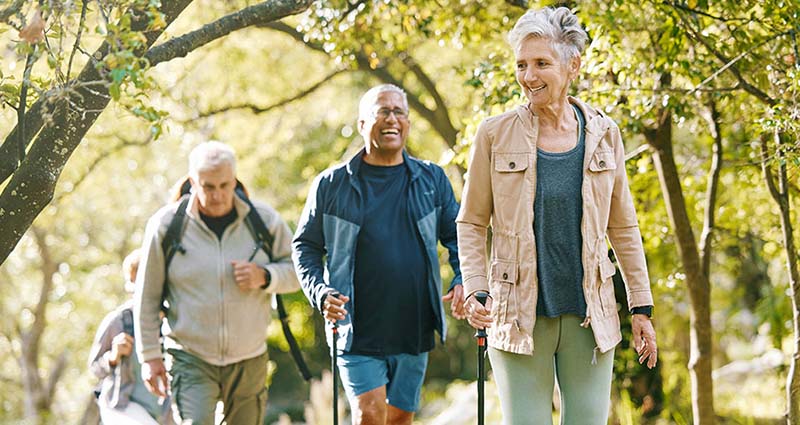Friendship checkup: Are your relationships good for your health?

Did you know your social relationships have an influence on your health? And we’re not just talking mental health. They can also affect your physical health.1 That said, maybe it’s time for a friendship checkup.
No person is an island
First off, it is important to have friends. People who are socially isolated are more likely to have health problems than those who are more socially connected.2 Adults who are lonely or socially isolated are at higher risks for:
- Heart disease
- Anxiety and depression
- Obesity
- High blood pressure
- Cognitive decline and more2
Now, let’s assess the health of your relationships.
Friend or foe?
How do you know whether your relationships are helpful or harmful? Try asking yourself the following questions.
Do your friends help you make good choices?
One could say we are who we meet up with. Peer pressure is real, even in adulthood. Our relationships can affect our choices. For example, do you drink alcohol around some friends and not around others, even if you’d rather not? If so, you may want to consider why.
What about food choices? Do you tend to eat healthier around some friends than around others? Do some friends inspire you to exercise? Do some influence you to take risks, overspend or do things you regret later?
Think about the interactions you have. You may consider journaling after meeting up with friends to better evaluate the relationships. Possible questions to ask yourself include:
- Why did I choose to meet with __________?
- Did our meeting inspire me to make healthy choices?
- What did I like about our meeting?
- What didn’t I like about our meeting?
- Do I really want to get together with ________ again? Why or why not?
Do you feel better or worse after spending time with your friends?
This question applies to both your physical and mental health. Do you feel loved and supported by your friends and family?1 One way to recognize whether a relationship is bad for you is whether you are being emotionally or psychologically taken advantage of.3 If you grew up in and around harmful relationships, it can be challenging to recognize them as an adult.
Here are some signs you may be in an unhealthy relationship:
- Does the relationship leave you feeling exhausted? All relationships take work, but if you find yourself in one that is continually draining your energy, it’s probably not healthy.
- Does the person ignore your boundaries? A real friend will always accept your “no.” This is true without you even needing to provide a reason why.
- Does the person talk about you with others out of “concern” for your well-being? Your story is yours alone to share. This is true unless you give people permission to share it. Friends who talk about you and your circumstances to others may not be doing so with your best interest at heart.3
Do you receive as much as you give with your friends?
This can be materially, emotionally, etc. You may be in an unbalanced relationship if you resent your time with a person. Do you do things with certain people because you don’t know how to say “no”?
It’s important that you’re a good friend to yourself first. You matter and your time is valuable. If you’d like help learning how to say “no,” you may want to try talking with a therapist.
A therapist can also help you work through ways to end or limit your exposure to people who are harmful for you.
Be a good friend to your health
Be sure you take good care of your health. We’re here to help you get from where you are to where you’d love to be. Sign in or create an account now. Then, access tools and support to help you every step of the way.
Not sure if you’re eligible for Teladoc Health?
Find ways to stay connected for better health.
1https://www.psychologytoday.com/us/blog/origins-of-health/202302/how-do-your-family-and-friends-affect-your-health
2https://www.nia.nih.gov/health/loneliness-and-social-isolation/loneliness-and-social-isolation-tips-staying-connected
3https://www.psychologytoday.com/us/blog/invisible-bruises/202305/5-signs-that-a-friendship-has-turned-toxic
You may not be eligible for all services. Log in to view the benefits included in your plan.
Was this article helpful?
Don't wait! Unlock a healthy, happy new year, at no cost to you.
This content is not intended to be a substitute for professional medical advice, diagnosis or treatment. Always seek the advice of your physician or other qualified health provider with any questions you may have regarding a medical condition.
